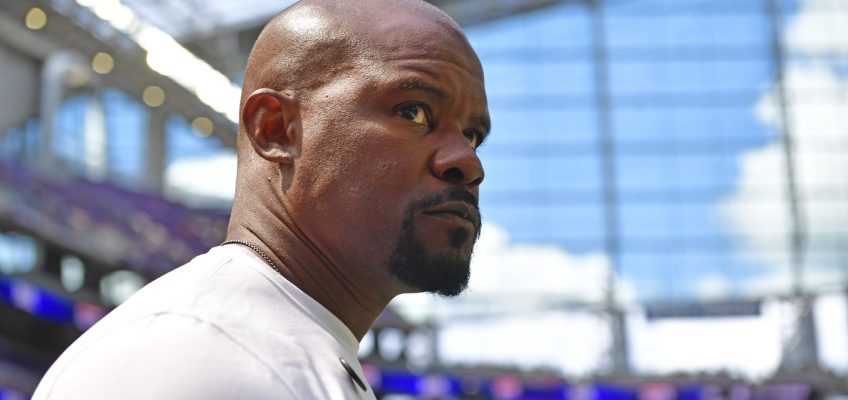Lebawit Lily Girma | Bloomberg News (TNS)
The ski resorts near Gunnison and Crested Butte, Colorado, are so close to Aspen, you’d think the area wouldn’t need its own airport. Their glitzier neighbor is just 48 miles north as the crow flies, though that’s roughly 150 miles by road.
But people flocking to Crested Butte’s laid-back town, extreme ski slopes and epic mountain biking have a new reason to bypass farther-away Aspen: the destination’s gleaming new airport, which debuted in January 2023.
Not only is the Gunnison-Crested Butte Regional Airport terminal easy to get across quickly, at just 40,000 square feet, it’s also heated and cooled with geothermal energy and uses triple glazed windows to keep travelers warm in a town known to be one of the coldest places in the US.
And Crested Butte isn’t the only small town airport receiving an upgrade.
All across the U.S., at least a dozen small and medium-size facilities are being renovated and, in some cases, entirely rebuilt — typically on budgets that stretch eight and nine figures. That contradicts a long-held belief among aviation industry pros that these regional facilities were destined to gather dust and die out.
Indeed during the pandemic, smaller U.S. airports fell out of favor. With business travel reduced to virtually nothing, airlines cut service to focus on more profitable leisure routes between large hubs. Planned facility improvements were also put on hold. Even as those issues faded, severe pilot shortages forced major airlines to cut back on more routes. In the process, they realized that the profit margins on smaller flight loads simply aren’t what they were a decade ago. It was a confluence of crises that seemed to doom small airports for good.
But some of these factors have since evolved. For one, second-tier cities are experiencing continued population booms, a trend that started with pandemic-era urban flight in 2020 and persists as remote workers look for more affordable places to live. A large number of unsold seats on those classic vacation flights have also proven to airlines that it’s time to reconsider their route maps, explains Brian Sumers, aviation expert and founder of the Airline Observer newsletter. Not to be overlooked is the high customer satisfaction associated with these smaller facilities, which are blissfully devoid of stress-inducing crowds and endless concourses that take forever to crisscross.
Of course money has a lot to do with it, too. The Biden administration’s Bipartisan Infrastructure Law has funneled at least $9 billion toward airport improvement around the country since 2022, which adds to public and private funding on a more local level that has helped revive a number of additional facilities. Though budgets are always subject to change, Knoxville and Memphis in Tennessee have seen a combined $830 million in airport investment; Des Moines, Iowa, has budgeted $445 million to transform its facility; and Pittsburgh has a full $1.5 billion to work with.
In other words, the renaissance of small American airports is officially in full swing. Here are a few examples of upcoming overhauls we’re excited about — consider them emblematic of what may soon come to a small town near you.
The challenge of expanding a small airport is keeping its more intimate vibe intact, says Brent Mather, the Denver-based design principal for Gensler, a leading architecture firm spearheading a number of these projects. Preserving the ability to arrive 30 minutes before your flight and still make it through security and get on a plane, he says, “means a lot, especially to people that live there. It’s a huge selling point.”
For example, at the newly redone Eagle County Regional Airport near Vail, Colorado, it takes less than five minutes to traverse the entirety of the 65,000-square-foot concourse, which opened in late 2020. By comparison, it’s 1.45 miles—roughly a 30 minute-walk—to get from the airport terminal train to the gates at Denver International.
That philosophy is driving the design of a $2 billion, 1 million-square-foot terminal at John Glenn Columbus International Airport, scheduled to open in 2029, with a market-like dining hall right at the center of its single concourse. The idea, says Gensler aviation lead Tim Hudson, is to create a seamless passenger experience where you can eat, drink and shop in a hyper-accessible spot, from which passengers can see at least two-thirds of the airport’s gates and plenty of flight monitors. “It’s one big concourse, one central security checkpoint, and one concessions program — where passengers can access the entire building.”
The new terminal, which will fully replace the existing one, is being co-designed by Gensler and Columbus-based firm Moody Nolan to have 36 gates — seven more than the current airport — plus a 5,000 car parking garage. Its groundbreaking is set for early 2025.
“Our current terminal opened in 1958 and was built for a different time,” says Joseph Nardone, president and chief executive officer of the Columbus Regional Airport Authority. “With a more efficient, easier to navigate, and sustainable design, we will be ready to meet and exceed travelers’ expectations and support our growing community for years to come.”
The number of travelers to this central Ohio city will rise from 8.7 million passengers in 2023 to an estimated 13 million in 2033 — a spike fueled by Columbus’ emergence as a Midwest tech and business hub.
New Six Flags all-access pass lets people into all 42 parks
Speak easy? The ups and downs of travel translation apps
What are hush trips? The secret workcations everyone’s whispering about
Now’s the time to binge-watch ‘Palm Royale’, then visit Palm Beach hot spots
Town of LaGrange preserves 2 centuries of history amid sweetness of Georgia charm
In Nevada, Reno-Tahoe International Airport is readying for two new concourses that will begin construction in 2025 and wrap in 2030. An influx of new residents, fueled by a reputation for family-friendliness and a growing number of data centers, is expected to drive Reno-Tahoe’s annual passenger loads from 2.3 million passengers today to 3.7 million by 2046. As the airport expands, two priorities will be increasing the gate sizes to accommodate larger planes and adding more food and beverage options.
Sense of place is another consideration. Mather is keenly aware that regional airports are typically more expensive to fly into and out of than their larger, international counterparts, and with that premium comes an expectation of better service and inspired design.
“We want people arriving to go, ‘Wow! OK, I am in Reno, this is going to be a really good experience,’ whether it’s for business or for leisure,” he explains.
In Columbus, the central concession will have floor-to-ceiling views of the runways and resemble the town’s historic North Market — a farm stand and restaurant complex that’s popular with visitors. That’s expected to drive spending, too: In San Francisco International Airport’s Terminal 2, a similar overhaul that turned standard airport restaurants into a farmer’s market-inspired dining hall led to a 23% increase in revenue, says Hudson.
At Gunnison-Crested Butte, the main restaurant and lounge have brightly painted stripes on a pitched ceiling that nod to Crested Butte’s colorful Victorian facades downtown. Wraparound windows throughout frame a stunning mountain landscape.
The future Reno airport, too, will have a concourse lined end-to-end with panoramic views of the area’s distant peaks. Mather says he was thinking about the feeling of leaving a ski resort in Tahoe and catching a flight home from Reno when he designed those walls of windows. “I want it to feel like it’s an extension of someone’s vacation,” he says.
©2024 Bloomberg L.P. Visit bloomberg.com. Distributed by Tribune Content Agency, LLC.




